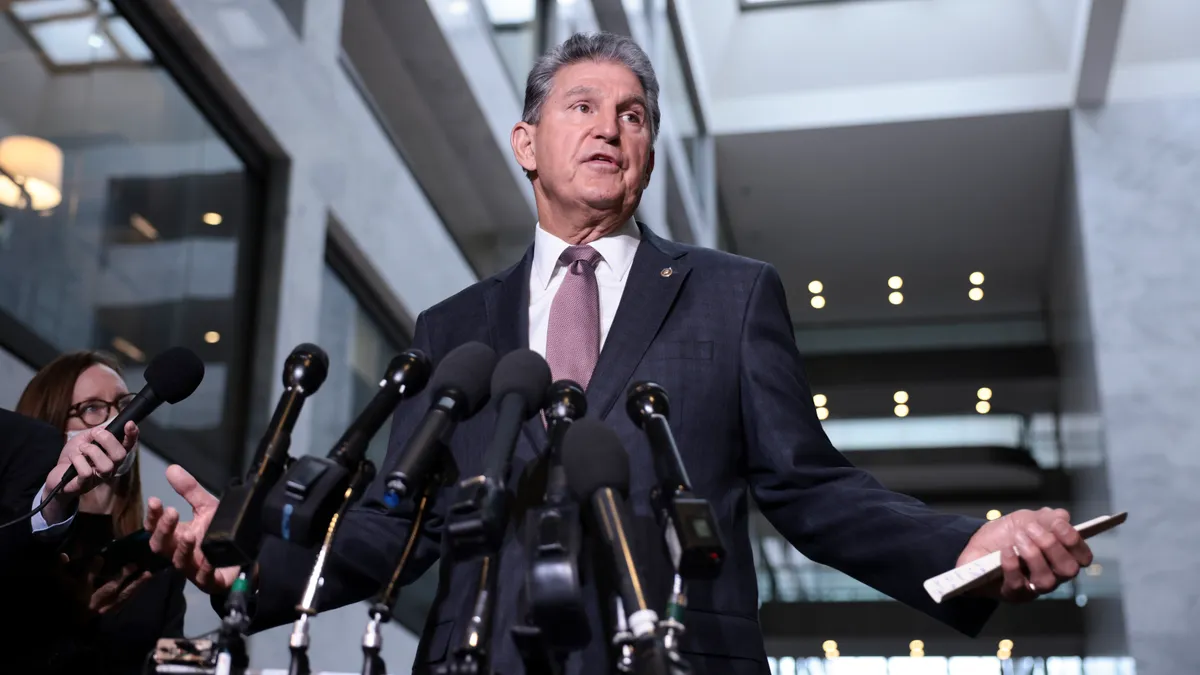Sen. Joe Manchin, D- W.Va., said Thursday he will not support any new climate-related spending in a reconciliation package that Democrats were hoping to pass, The Washington Post reported. His stance may have effectively killed any extension to the existing federal tax credits for the purchase of electric vehicles.
In a statement issued July 13 following the release of the latest consumer price index data showing inflation at 9.1% over the past 12 months, Manchin said, “No matter what spending aspirations some in Congress may have, it is clear to anyone who visits a grocery store or a gas station that we cannot add any more fuel to this inflation fire.”
Current EV tax credits expire for each auto manufacturer when they sell 200,000 electric vehicles. GM, Tesla and Toyota have already used up their tax credits. In June, the CEOs of the four largest automakers in the U.S., including General Motors, Ford, Chrysler-parent Stellantis and Toyota Motor North America, urged Congressional leaders to remove the limitation.
Observers had been hoping that lawmakers would be able to negotiate a deal that Manchin would support with incentives for domestic manufacturing, with perhaps an income limit on buyers eligible for the credit.
“There truly aren’t words for how appalled, outraged, and disappointed we are,” said League of Conservation Voters Senior Vice President of Government Affairs Tiernan Sittenfeld in a statement. “Senator Manchin had every opportunity to stand up for climate, jobs and justice, and save families money when they need it most, but instead he is choosing to stand with polluters.”
More and more consumers are choosing EVs. Sales of battery-electric vehicles set a new record in the second quarter of this year and took a 5.6% share of the new vehicle market.
“It’s outrageous that Manchin and the Republican party have killed climate legislation this Congress, but the Biden administration can still do critically important things to address the climate crisis, right now,” said Brett Hartl, government affairs director at the Center for Biological Diversity, in a statement.











